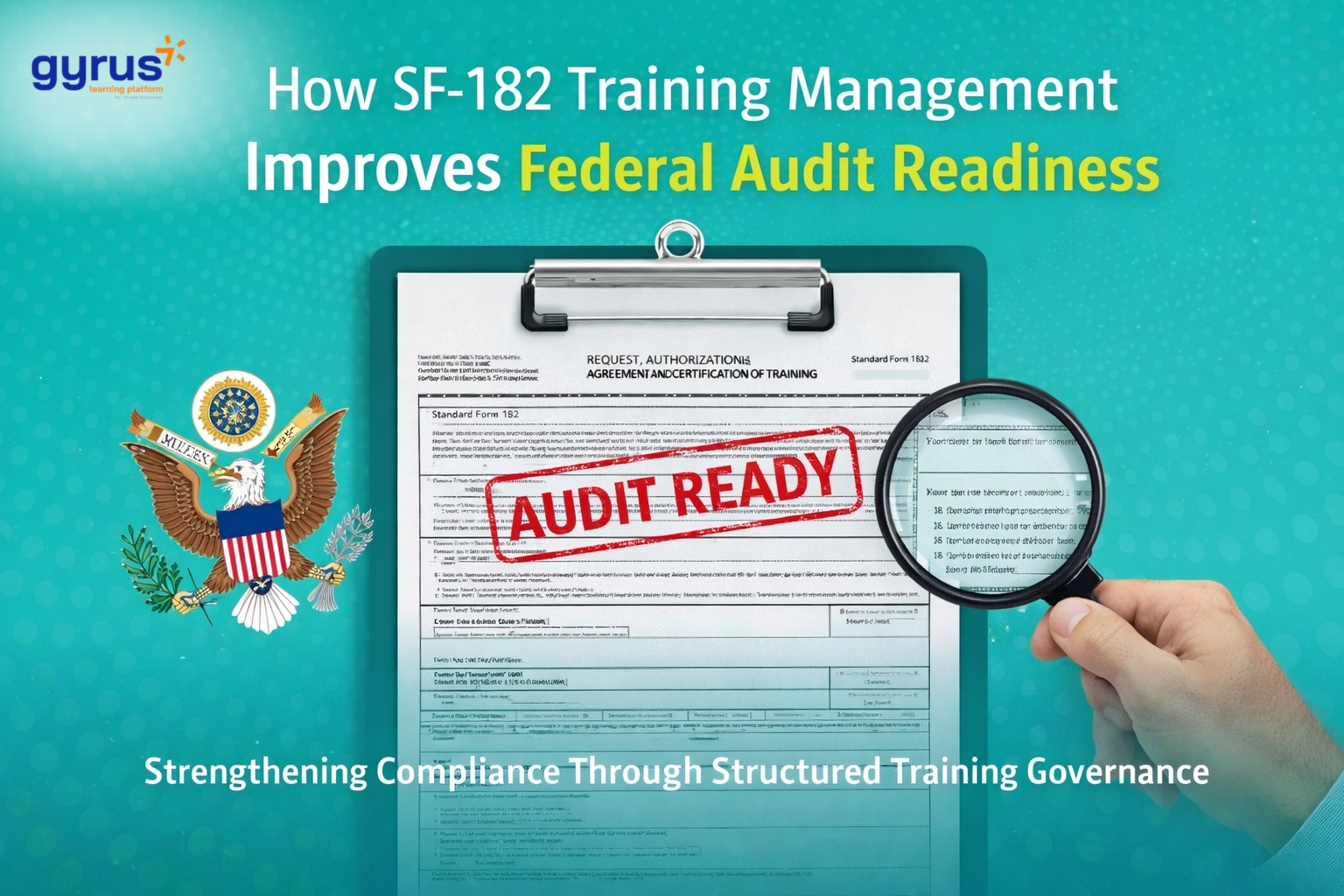In the life sciences industry, regulatory compliance, employee training, and operational excellence are tightly interconnected. Unlike many other sectors, life sciences businesses operate in a landscape where adhering to stringent regulations isn’t optional—it’s a necessity. This makes the role of training managers crucial. The right learning management system (LMS) can be a powerful tool to help training managers navigate these complexities, but configuring an LMS for life sciences businesses involves unique challenges and considerations.
In this blog, we’ll explore why configuring a training management system for life sciences is different, highlight the critical features training managers should look for, and showcase how GyrusAim LMS is tailored to meet these specialized needs.
The Unique Challenges of Life Sciences Training
The life sciences industry encompasses pharmaceuticals, biotechnology, medical devices, and other highly regulated fields. Training programs in this sector aren’t just about employee development—they directly impact compliance, product quality, and patient safety. Here’s why configuring an LMS in this environment is unique:
1. Regulatory Compliance Requirements
Life sciences organizations must comply with rigorous global regulations, including:
An LMS in this context must support compliance training, document control, audit trails, and validation to ensure that all training records meet regulatory standards.
2. Comprehensive Validation
Unlike other industries, life sciences LMS implementations require extensive validation to prove that the system performs as intended under real-world conditions. This process involves Installation Qualification (IQ), Operational Qualification (OQ), and Performance Qualification (PQ) to demonstrate compliance.
3. Role-Based Training Paths
Training in life sciences isn’t one-size-fits-all. Employees across roles—from lab technicians to quality assurance professionals—require tailored learning paths to align with their specific job responsibilities and compliance needs.
4. Continuous Learning and Change Management
With evolving regulations, new product launches, and technological advancements, life sciences businesses require an LMS that supports ongoing learning and seamless updates.
5. Global Scalability and Multilingual Support
Life sciences businesses often operate on a global scale, necessitating an LMS that accommodates diverse regulatory requirements, languages, and cultural considerations.
Lift Your Life Sciences Training Today
Transform your training programs with GyrusAim LMS. Streamline compliance, enhance employee development, and meet regulatory standards like 21 CFR Part 11.
Critical LMS Features for Life Sciences Training
A well-configured LMS can help life sciences training managers meet these challenges effectively. Here are the must-have features to consider:
1. Robust Compliance Management
2. Training Validation Tools
3. Customizable Learning Paths
The LMS should enable training managers to create role-specific learning paths. Features like competency-based training and skills gap analysis can ensure employees meet both job and compliance requirements.
4. Advanced Reporting and Analytics
Training managers need actionable insights into training completion rates, compliance gaps, and performance trends. A configurable dashboard with exportable reports is a must.
5. Integration Capabilities
Life sciences organizations use various systems for HR, quality management, and document control. The LMS should integrate seamlessly with these platforms to create a unified training ecosystem.
6. Scalability and Localization
The LMS must support multilingual content, local compliance regulations, and user-friendly interfaces to cater to a global workforce.
7. AR/VR and Simulation Support
Advanced training modalities like augmented reality (AR), virtual reality (VR), and simulations are becoming critical for life sciences businesses, particularly for product assembly or lab training.
How GyrusAim LMS Meets Life Sciences Needs
GyrusAim LMS is uniquely positioned as a training management system for life sciences, supporting training managers with its robust feature set tailored to the industry’s requirements. Here’s how it stands out:
1. 21 CFR Part 11 Compliance
GyrusAim LMS includes built-in compliance tools, such as electronic signatures, secure access control, and comprehensive audit trails, ensuring your training records meet FDA requirements.
2. Validation Capabilities
The system supports end-to-end validation for IQ, OQ, and PQ processes. GyrusAim provides validation documentation to streamline the process, saving valuable time during audits.
3. Role-Based Learning Paths
With GyrusAim LMS, training managers can create customized learning paths based on job roles, ensuring employees receive targeted training. Its skills management module tracks progress and highlights gaps for continuous improvement.
4. Advanced Reporting and Analytics
GyrusAim offers configurable dashboards and robust reporting features. Training managers can track compliance completion rates, identify at-risk employees, and demonstrate training effectiveness during audits.
5. Global Scalability
With multilingual support and configurable settings, GyrusAim caters to life sciences businesses operating in diverse regulatory environments worldwide.
6. AR/VR Integration
7. Seamless Integrations
GyrusAim LMS integrates with popular HR and quality management systems, creating a unified training environment that simplifies workflows and boosts efficiency.
Real-World Applications of GyrusAim LMS in Life Sciences
Case Study: Improving Compliance in a Global Pharma Company
A multinational pharmaceutical company implemented GyrusAim LMS to streamline its compliance training across 15 countries. By leveraging the platform’s multilingual support and compliance features, the company reduced training gaps by 25% and improved audit readiness.
Case Study: Enhancing Training Validation
A medical device manufacturer used GyrusAim LMS’s validation tools to achieve a faster rollout of its LMS while meeting all FDA requirements. The streamlined IQ/OQ/PQ process cut their implementation timeline by 30%.
Case Study: Boosting Training Effectiveness with AR/VR
A biotech firm incorporated Warp VR simulations via GyrusAim LMS to train lab technicians on complex equipment. The result? A 40% reduction in training time and improved retention rates.
Establish Compliance and Operational Excellence
Tailored for the life sciences industry, our LMS ensures 21 CFR Part 11 compliance, supports validation processes, and automates reporting, helping you meet regulatory standards while enhancing employee training and performance.
Best Practices for Configuring an LMS in Life Sciences
For training managers looking to maximize their training management system for life sciences investment, here are some best practices:
Conclusion
The life sciences industry demands more from an LMS than other sectors. For training managers, selecting and configuring the right LMS is pivotal for ensuring compliance, fostering employee development, and maintaining operational excellence. GyrusAim LMS stands out as a comprehensive solution designed to meet the unique needs of life sciences businesses.
With features like 21 CFR Part 11 compliance, robust validation support, customizable learning paths, and cutting-edge AR/VR integration, GyrusAim LMS empowers training managers to navigate the complexities of the life sciences industry with confidence.
Are you ready to elevate your training programs? Contact us today to learn how GyrusAim LMS can transform your life sciences training strategy.
Frequently Asked Questions






